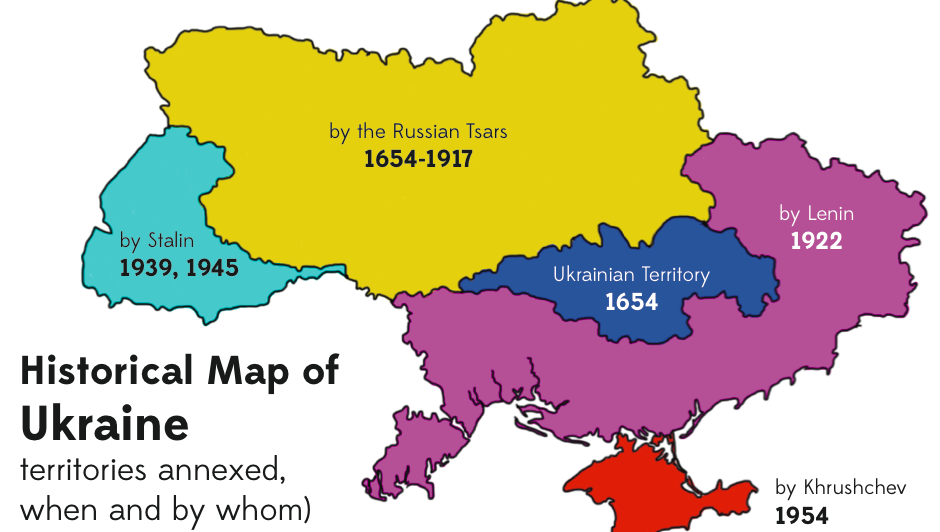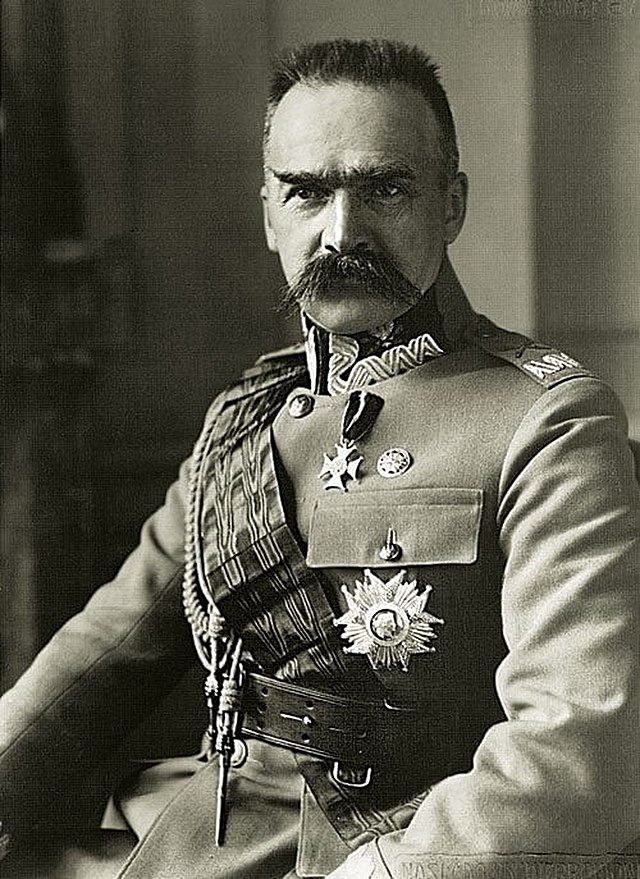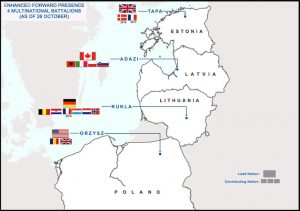
Views: 146
At the very beginning, it must be noticed that before the outbreak of WWI in the summer of 1914 it was not both either Poland or Ukraine as the state on the political map of Europe. Poland was considered a historical region while Ukraine was a geographical one. Poland was divided at the end of the 18th century between three powerful neighbors – the Kingdom of Prussia, the Habsburg Empire, and the Russian Empire while the present-day territory of Ukraine between the Habsburg Monarchy (Austria, Austria-Hungary) which took its western part including Lvov (Lemberg/Lwów) and the Russian Empire possessing its eastern and central portions including Kiev. However, the biggest portions of historical Poland and geographic Ukraine were governed by Russia from 1795 up to 1917.
For the reason to change a such geopolitical situation, it was created before WWI an idea of political cooperation between the Poles and the Ukrainians for the sake to fight for independence. Nevertheless, behind this idea was the project of reborn Great Poland within its historical boundaries (before the three partitions of Poland-Lithuania in 1772, 1793, and 1795). The Polish state was re-established on November 11th, 1918 but at that time the Poles and the Ukrainians were already fighting with each other over the land and the borders. On the same day, Józef Piłsudski (born near Vilnius in Lithuania/Litwa in 1867) became appointed by the Governing Council of Poland (in fact, the government) to the position of the head of state with dictatorial authority (“Naczelnik”).[i] His first duty was to create the government of the just re-established independent state of Poland. He was the leader of Poland till 1922 and from 1926 to 1935 when he died. During his governing of Poland, the Polish foreign policy, especially toward Soviet Russia/USSR, Lithuania, and Ukraine depended on his designs and political decisions. He wanted to realize the idea of re-born independent Poland during WWI as saw wartime as a great opportunity to re-establish the borders of historical Poland (those borders were established on the east at the very expense of Eastern Slavs, primarily Russians, and Russia). However, to do that, the precondition was the dismissal of the three empires: Germany, Austria-Hungary, and Russia. Only on the ruins of all three of them, the borders of historical Poland could be re-created. Nevertheless, at the very end of the war, it became obvious that Lithuanians and Ukrainians would not support this idea and his designs concerning historical Poland as in this case both of them had to be included in Poland but not be independent. The greatest part of this idea could be realized by the collapse of Russia during the war (as the biggest portion of historical Poland was included in Russia) and, therefore, J. Piłsudski supported the Russian defeat by Germany and Austria-Hungary. For that reason, since 1908 he was forming Polish legions which had to fight on the side of the Central Powers against the Russian Empire on the Eastern Front.
The Bolshevik anti-Russian revolution in October/November 1917 followed by the 1917−1922 Russian Civil War offered new political possibilities to several nations to get either formal independence or autonomy within post-revolutionary Russia (in fact, the USSR). That was exactly an idea that was promulgated by Józef Piłsudski for the last two decades.
Nevertheless, from the very beginning of WWI, the Polish question was put within the geopolitical designs of the German Second Reich (1871−1918) which meant in the practice that the Polish patriots and nationalists have been only observers without a real political and military power to change the political map of Central and East Europe to their national favor. Up to the very end of WWI, in other words, they could just silently observe the changes that occurred in this part of Europe including the Bolshevik red revolution, the Russian civil war between the Reds and the Whites, and finally, the military occupation of present-day West Ukraine by the Central Powers.
Józef Piłsudski himself became arrested by the Germans in the summer of 1917 (being in the German prison in Magdeburg till November 1918) for the very reason he did not want to put his military detachments (legions) under the German supreme command. He became free when the Russian Empire already collapsed due to the pro-German Bolshevik revolution. In the meantime, on November 11th, 1918 Poland proclaimed its national-political independence but without clear and internationally agreed state borderlands especially in the east (conflict with the Bolshevik Russia, Lithuania, and Ukraine). From the time of the beginning of the Russian civil war in November 1917 up to the end of WWI, there were a number of nations who proclaimed their national-political independence including Poland as well (From Finland to Azerbaijan).
The Polish head of state, saw East Ukraine with Kiev to be the key subject to the question of the Russian future and, therefore, to Poland too. He took into consideration several important facts regarding Ukraine as its geopolitical position, economic potential including the production of grain, coal, salt, iron ore, or steel, and finally its huge population number which was at that time around 30 million people. All of these factors have been taken into consideration as Ukraine was a natural ally of Poland against the Russian Empire or any form of Russia including a Bolshevik one as a successor of the Russian Empire.
That was a time (November 1918) when self-proclaimed the so-called Ukrainian People’s Republic (the UPR), in fact, present-day East Ukraine, was fighting to survive against the Bolshevik Red Army as V. I. Lenin did not want to recognize any kind of Ukrainian independence but rather autonomy within Bolshevik Russia (later the USSR). The same policy intentions he had regarding all other ex-Russian territories that had proclaimed independence from the Russian Empire in 1917 and 1918, including Poland as well. For that purpose, Lenin’s Bolsheviks organized a political attempt in November 1918 to take power in Poland which ultimately collapsed. Nevertheless, it was a clear signal for the new Polish authorities in Warsaw that Lenin’s Bolsheviks are the enemies of Polish independence and Polish geopolitical projections in East Europe including parts of present-day Ukraine, Belarus, and Lithuania (or in other words, former historic Kingdom of Poland and Grand Duchy of Lithuania according to the 1569 Union of Lublin). Nevertheless, a new Bolshevik government in St. Petersburg started to militarily occupy land claimed by Warsaw and to bolshevizied it which became the casus belli for the 1918−1920 Polish-Bolshevik War.
To have a better position in the fight against the Bolsheviks, J. Piłsudski sent to Kiev at the end of November 1918 a special diplomatic mission which had the prime task to discuss with the new Ukrainian authorities all possibilities concerning Polish-Ukrainian military cooperation. For the same purpose, in January 1919 it was sent to Warsaw the Ukrainian delegation from Kiev in order to discuss all practical problems regarding the making of the Polish-Ukrainian anti-Bolshevik military coalition. But in the practice, at that time, at least for the Polish side, such military alliance became, in fact, not so relevant as Poland did not have armed forces which could substantially help the UPR against the Red Army. For instance, when WWI was over, the Polish army numbered only some 6.000 soldiers, although their number was growing progressively. For example, in two months, the Polish army had around 110.000 volunteer soldiers and officers but they have not been able to successfully participate in any serious military action at least until the spring of 1919. Nonetheless, it became the truth that the Polish army had to be engaged in the first serious military campaigns exactly against Ukrainian forces over the territory of East Galicia, and, therefore, Polish negotiations with the Ukrainian side became broken off already in January 1919.
Ex-University Professor
Research Fellow at Centre for Geostrategic Studies
Belgrade, Serbia
www.geostrategy.rs
vsotirovic@yahoo.com © Vladislav B. Sotirovic 2023
[i] Joseph Klemens Piłsudski was born on December 5th in 1867 and died on May 12the in 1935. He was born near Vilnius (Litwa) at that time part of the Russian Empire (the so-called “Russian Poland”). He was studying at the Kharkov University and became one of the chief agitators for the Polish Socialist Party (the PSP) since 1893. However, his focal political orientation and aim was to gain an independence for Poland primarily from Russia, but if possible, within the historical borders of Poland as they existed before 1795 (the Third Partition of Poland-Lithuania). For his anti-Russian activities, J. Piłsudski was in 1887 exiled to Siberia. In 1892 he returned to Poland and founded underground propaganda newspaper to agitate for the independence of Poland. In 1914 after the start of WWI he organized Polish volunteer detachments to join the army of Austria-Hungary on the Eastern Front to fight Russia. After the Russian February Revolution in 1917, he required from Germany to guarantee the ultimate independence of Poland but when the German authority rejected the requirement J. Piłsudski stopped to support Berlin. As a consequence, he was interned in 1917−1918. In newly independent Poland he became head of state in 1918−1922 and Chief of Staff of the Polish Army in 1918−1923. During the Polish-Russian War after WWI, J. Piłsudski succeeded to expend the eastern borders of Poland at the expense of Bolshevik Russia. In 1926, he organized and lead an army putsch and dissolved Parliament. Until his death he was Minister of War and general inspector of the armed forces but failed to modernize both the army and economy.
FOLLOW US ON OUR SOCIAL PLATFORMS









